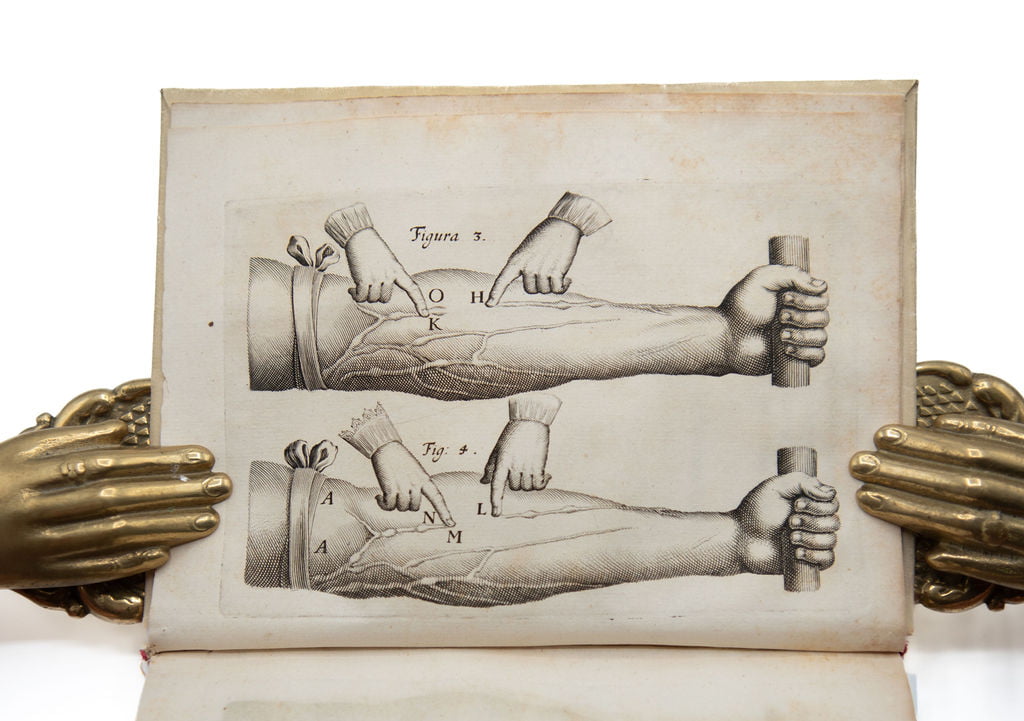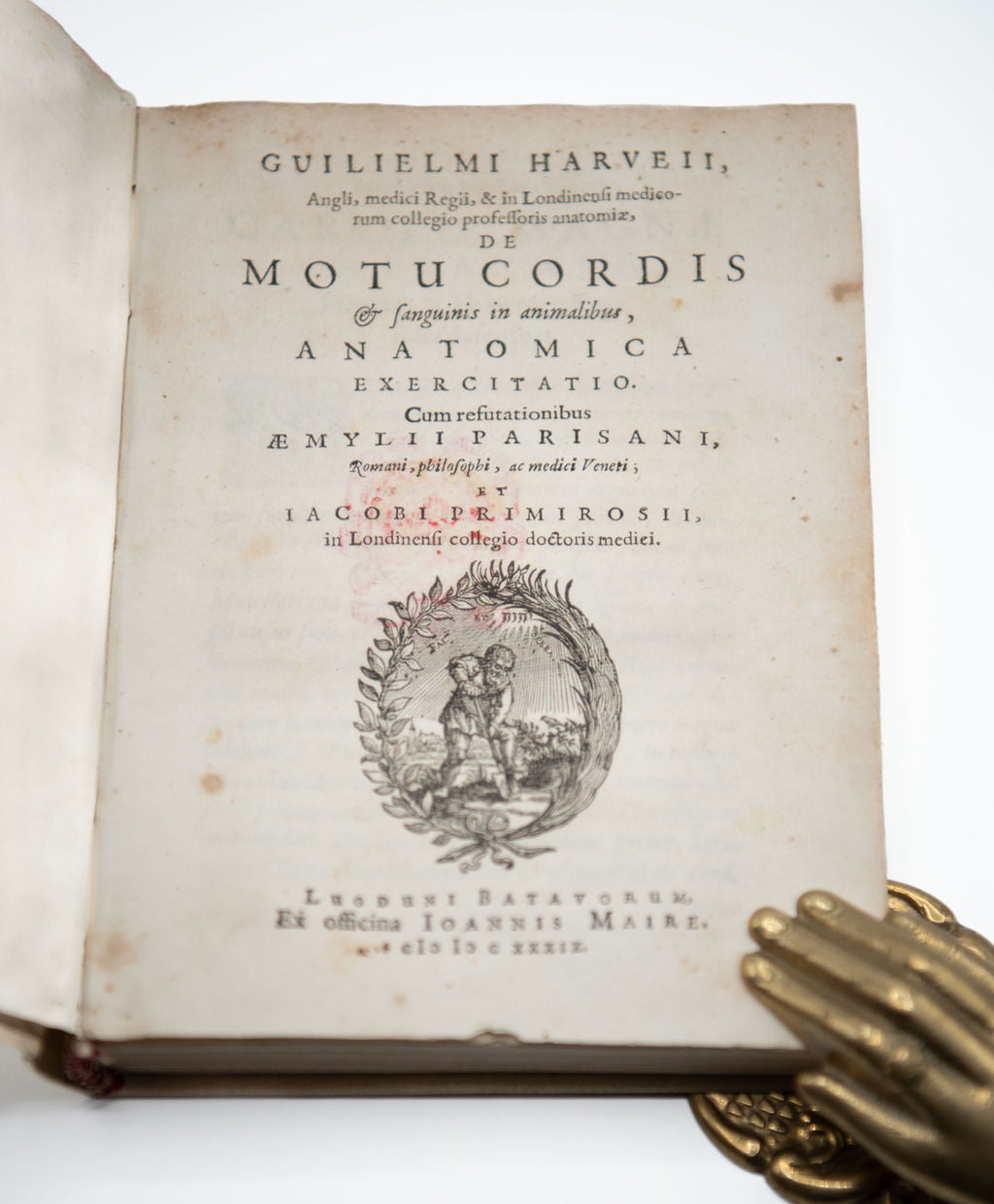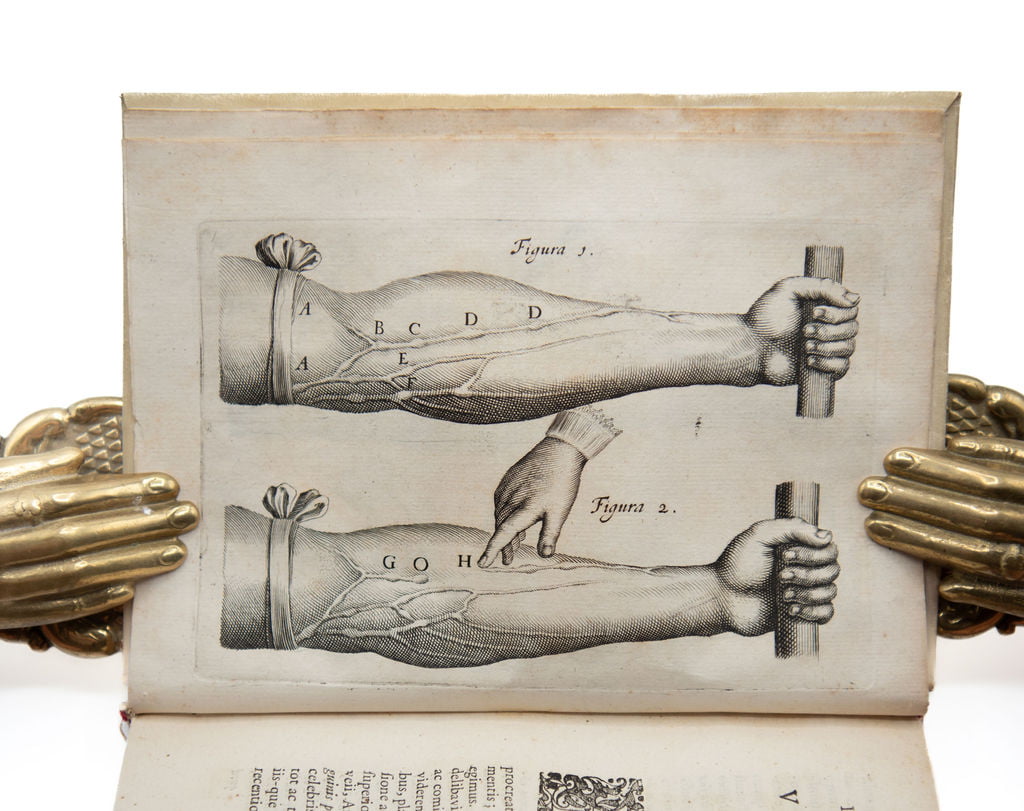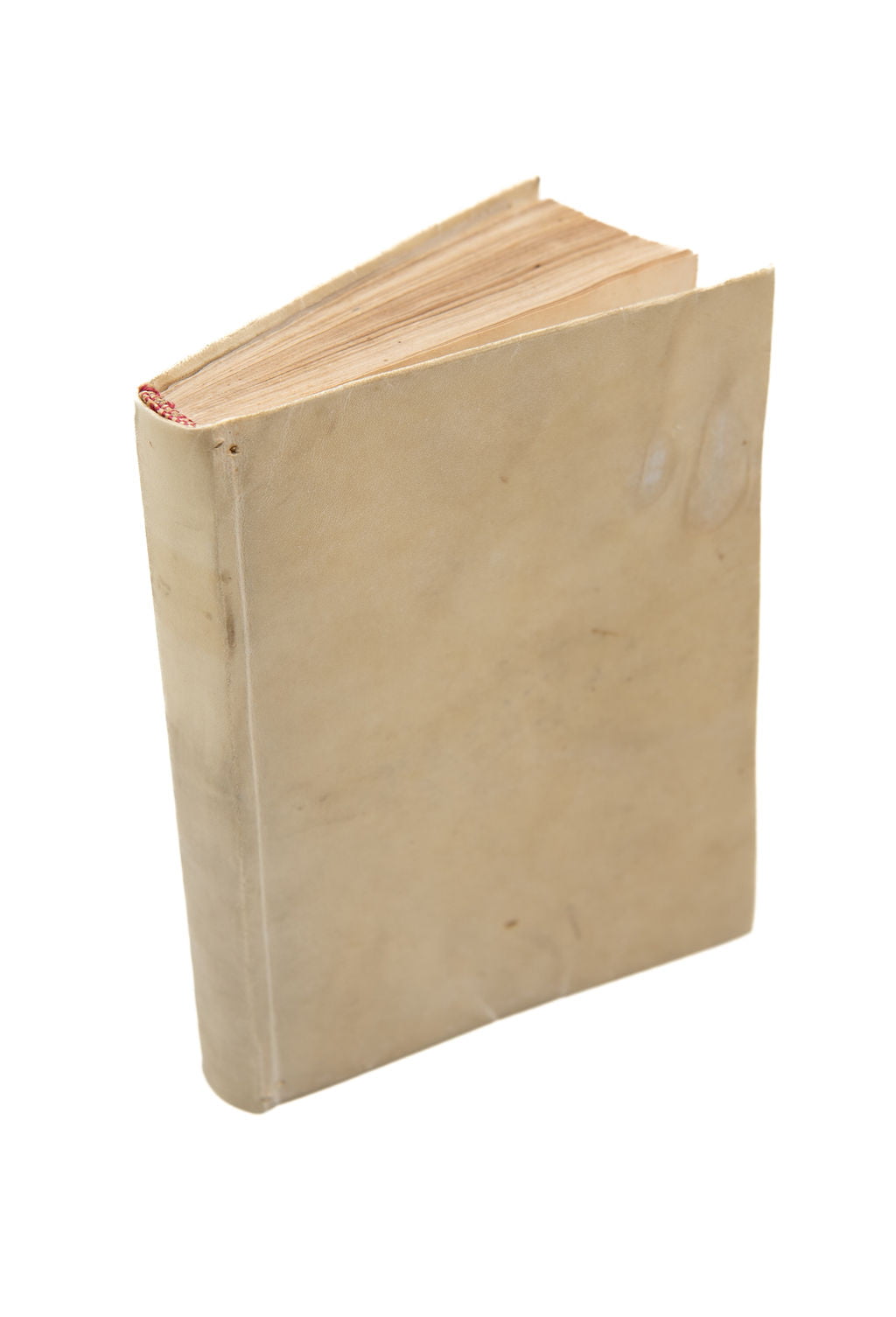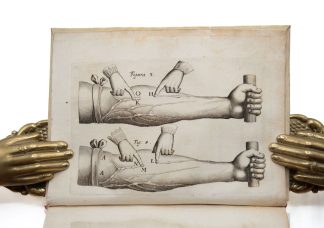HARVEY, William.
De Motu Cordis.
Leyden, Joannis Maire, 1639£45,000.00
Sm. 4to. pp (viii) 267 (i), 84 (iv), the last misplaced between pp. 82 & 83 (as often). Roman and Italic letter, printer’s device on t-p. prelims include two full page plates of experiments with blood circulation in the arms, very clean in excellent impression. Intermittent paper browning as usual, spotting towards end of both parts, large red armorial stamp on blank verso of t-p and lower margin of last, early ms case mark on fly. An unusually good, crisp well margined copy in probably contemporary vellum, sometime cleaned, original eps.
Nominally the third edition of Harvey’s great work “probably the most important book in the history of medicine” (Heirs of Hippocrates 256) however only the second of the complete text. The second edition (1635) omitted parts of the introduction and chapters one and sixteen of the text. Harvey (1578-1657) read medicine at Cambridge and Padua, where he was a pupil of Fabricius, was a fellow of the Royal College of Physicians, Physician-in-charge at St. Bartholomew’s Hospital, from 1615 Lumleian Lecturer and subsequently physician to King James I, Charles I and notables such as Francis Bacon. He was the most important medical figure in England of his day. But his fame rests on the publication in 1628 of this small work, describing accurately for the first time, the circulation of the entire system of the blood. “The scientifical outlook on the human body was transformed and behind almost every medical advance of modern times lies the work of Harvey” (Heirs of Hippocrates cit.sup). DSB vol.6 pg. 151 adds “By this discovery he revolutionised physiological thought … Beyond this, he inspired a whole new generation of anatomists who sought to emulate his methods in the study of animal functions. And, more generally still, his work was one of the major triumphs of early modern science, and thus helped to generate the enthusiasm for science that came to dominate European intellectual life during the second half of the seventeenth century.” Harvey’s discovery of the functions of the circulation even now remains the cornerstone of modern physiology and medicine.
Like the first, this edition is printed on indifferent paper and often with binding errors. Here however, Harvey’s text is printed passage by passage alternately with his refutation of Parisano while the criticisms and refutations of Primrose constitute the separate second text. It is also the earliest complete edition obtainable. The last first we could find at auction, nearly twenty years ago, sold for approximately three quarters of a million US$.
Wellcome I 3070. Garrison & Morton 759 “the most important book in the history of medicine” (of the 1st). Printing and The Mind of Man 127 (1st).In stock


